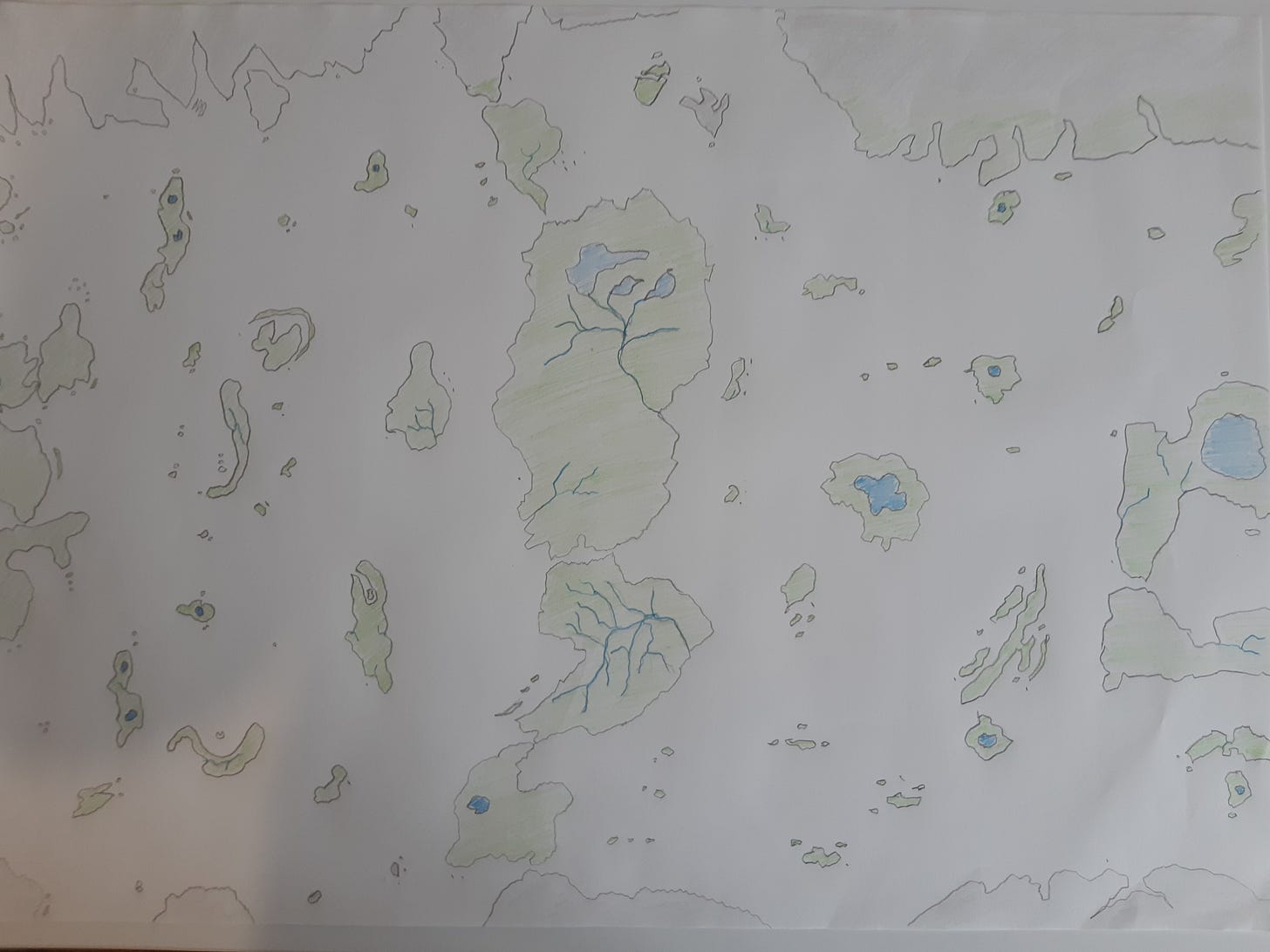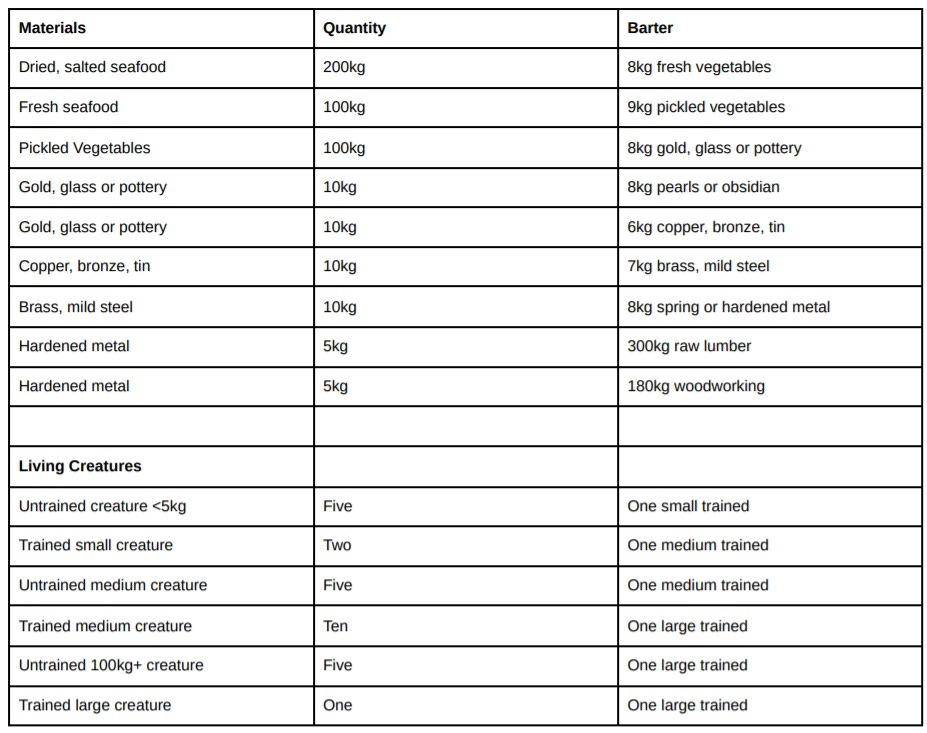Trade & Barter System
This barter system is world specific to the ocean world I created. The world is mostly ocean, and fish and other seafood are plentiful. Therefore fish aren’t very valuable. Ships usually set sail on a long voyage with pickled vegetables and live animals like goats for milk and ducks for eggs. Soft metals are less valuable than hard metals. Copper alloys are used to coat the bottom of ships for anti-fouling properties. Gold and silver are extremely common, and gold coatings and alloys are used because they are corrosion resistant. Tableware, cups, bowls, plates, armor coatings are typically made or coated with from the least valuable metals like gold. Silver is considered low class due to its tendency to tarnish. Glass and pottery materials are more common than gold, but require more labor with less durability with so they cost roughly as much as gold. Pearls and obsidian are similar: very common, but harder to work with.
Tamed, domesticated or trained creatures are numerous but also highly desired and prized according to their training. As mentioned, ducks & goats are important sources of eggs and milk on long voyages. Ship’s dogs, ship’s cats, messenger birds, fishing birds are all useful when trained. Because there are so many, and untrained animals have value, but mostly to animal trainers who can improve their worth. Larger trained loyal creatures (heavier than 100kgs) are even more valuable because they add bonuses to magic users. Magical creatures aren’t rare, but are extremely difficult to train and are never “sold” in a conventional sense. Note: all living animals and creatures are almost always given as gifts, rewards, or traded for other animals or creatures. Selling a living thing for objects is taboo and thought to bring misfortune (ie Destiny Point fails). Creature trainers are highly regarded in the community, but it is considered non-profit work supported by charity like a church. Typically characters will donate untrained animals to a trainer and ask to be “matched” to a creature of the trainer’s choosing.
Because so much of the world is ocean, trees and wood are a valuable resource. Any stand of trees whether an orchard, nut bearing trees or trees for woodworking, weapons or ships is carefully guarded, cared for and managed. Only large, older trees are harvested, although any storm fall trees or fallen twigs are gathered up. No part of the tree is wasted and planting trees is a major industry. Bamboo is also harvested in large quantities, though not worth as much as wood. Because wood is so valuable, buildings are typically constructed with stone, mud bricks, bamboo and thatch.
More expensive than wood are harder metals, especially steel alloys.
To barter roll persuasion and the other person also rolls persuasion. Each victory can decrease or increase the price roughly 10%. And of course if the shopkeeper or other party wins they charge extra/pay less. Note: characters aren’t going to be able to trade extreme amounts of anything. For example 10,000kg of fresh fish cannot be traded because no market can sell all that while it is still fresh. Fresh means caught that day. Dried fish can’t be traded for fresh fish, and can only really be traded for fresh vegetables. A kilogram of gold is worth 1,000kg of dried fish, but only the largest sellers would have that much dried fish. In a barter system, many traders are going to ask for the lightest, most valuable products because they need to transport the items too. So you generally can’t get a sword, no matter how much pickled vegetables you have without trading the vegetables for something further up the chain first. The easiest way to trade is to trade in something a particular trader also deals in, so trading fresh vegetables to the pickled vegetable dealer, or trading shovels for a sword. Scales are very important in trade as the system is primarily by weight, with persuasion rolls covering special considerations like quality. Note: services like hot coffee, tea, cooked food and lodging are typically priced in one of the goods listed below. For example: 1kg pickled vegetables or 500 grams of gold.
Common Trades: (see also trade matrix spreadsheet)




